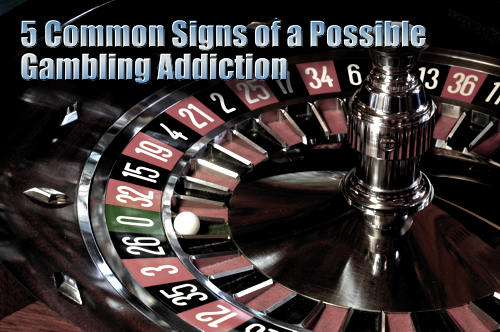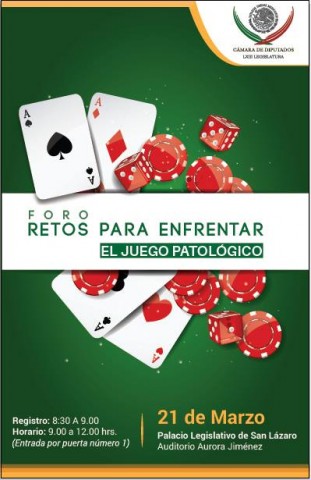Pathological Gambling
- Pathological Gambling Age
- What Causes Compulsive Gambling
- What Is Pathological Gambling
- Pathological Gambling A Critical Review
Brief Biosocial Gambling Screen (BBGS)
Pathological Gambling Age
- Pathological gambling, also known as compulsive gambling or disordered gambling, including harmful physical, psychological and social effects, is a recognized psychiatric illness marked by a history of continued gambling. In this article, we will talk about pathological gambling addiction.
- Pathological (disordered) gambling has commonalities in clinical expression, etiology, comorbidity, physiology and treatment with Substance Use Disorders Lowered Threshold for Pathological (Disordered) Gambling Diagnosis; Several empirical studies have supported lowering the threshold for a diagnosis of pathological (disordered) gambling.
Pathological gambling is a type of impulse control disorder where individuals have moments of compulsion or craving, lose control around gambling and continue their behavior despite the presence of adverse consequences for their behavior. Once gambling becomes a compulsive thing for an individual, it is not uncommon for them to eventually need.
The Brief Biosocial Gambling Screen (BBGS) is a 3-item survey designed to help people decide on their own whether to seek a formal evaluation of their gambling behavior. The BBGS is based on the American Psychiatric Association’s Diagnostic and Statistical Manual of Mental Disorders (DSM-IV) criteria for pathological gambling.
DSM-5 Gambling Disorder Criteria
The American Psychiatric Association provides guidelines used for gambling disorders in the Diagnostic and Statistical Manual of Mental Disorders, Fifth Edition (DSM-5). For more information on the DSM-5, please visit http://www.dsm5.org/.
NORC Diagnostic Screen for Gambling Problems-Self Administered (NODS-SA)
The NODS-SA is self-assessment version of the NODS (the NORC Diagnostic Screen for Gambling Disorders). It was designed to assist individuals in evaluating whether to modify or seek help for their gambling behavior. The NODS is based on the APA’s DSM-IV criteria for pathological gambling.
Please answer the following 10 yes/no questions honestly:
*REMINDER: this self-assessment will help you figure out if there is a problem, but only a professional can diagnose if it is a gambling problem, a different problem, or both.
If you answered yes to one or more of the above questions, you should seek help.
Compulsive gambling is being unable to resist impulses to gamble. This can lead to severe money problems, job loss, crime or fraud, and damage to family relationships.
Compulsive gambling most often begins in early adolescence in men, and between ages 20 and 40 in women.


People with compulsive gambling have a hard time resisting or controlling the impulse to gamble. The brain is reacting to this impulse in the same manner it reacts to a person addicted to alcohol or drugs. Although it shares features of obsessive compulsive disorder, compulsive gambling is likely a different condition.
In people who develop compulsive gambling, occasional gambling leads to a gambling habit. Stressful situations can worsen gambling problems.
People with compulsive gambling often feel ashamed and try to avoid letting other people know about their problem. The American Psychiatric Association defines pathological gambling as having 5 or more of the following symptoms:
- Committing crimes to get money to gamble.
- Feeling restless or irritable when trying to cut back or quit gambling.
- Gambling to escape problems or feelings of sadness or anxiety.
- Gambling larger amounts of money to try to make back past losses.
- Losing a job, relationship, education, or career opportunity due to gambling.
- Lying about the amount of time or money spent gambling.
- Making many unsuccessful attempts to cut back or quit gambling.
- Needing to borrow money due to gambling losses.
- Needing to gamble larger amounts of money in order to feel excitement.
- Spending a lot of time thinking about gambling, such as remembering past experiences or ways to get more money with which to gamble.
What Causes Compulsive Gambling
A psychiatric evaluation and history can be used to diagnose pathological gambling. Screening tools such as the Gamblers Anonymous 20 Questions www.gamblersanonymous.org/ga/content/20-questions can help with the diagnosis.
Treatment for people with compulsive gambling begins with recognizing the problem. Compulsive gamblers often deny they have a problem or need treatment.
Most people with pathological gambling only get treated when other people pressure them.
Treatment options include:
- Cognitive behavioral therapy (CBT).
- Self-help support groups, such as Gamblers Anonymous. Gamblers Anonymous www.gamblersanonymous.org/ is a 12-step program similar to Alcoholics Anonymous. Practices used to treat other types of addiction, such as substance use and alcohol use, can also be helpful in treating pathological gambling.
- A few studies have been done on medicines for treating compulsive gambling. Early results suggest that antidepressants and opioid antagonists (naltrexone) may help treat the symptoms of pathological gambling. However, it is not yet clear which people will respond to medicines.
What Is Pathological Gambling
Like alcohol or drug addiction, pathological gambling is a long-term disorder that tends to get worse without treatment. Even with treatment, it's common to start gambling again (relapse). However, people with pathological gambling can do very well with the right treatment.
Complications may include:
- Alcohol and drug use problems
- Anxiety
- Depression
- Financial, social, and legal problems (including bankruptcy, divorce, job loss, time in prison)
- Heart attacks (from the stress and excitement of gambling)
- Suicide attempts
Getting the right treatment can help prevent many of these problems.

Call your health care provider or mental health professional if you believe you have symptoms of pathological gambling.
Exposure to gambling may increase the risk of developing pathological gambling. Limiting exposure may be helpful for people who are at risk. Intervention at the earliest signs of pathological gambling may prevent the disorder from getting worse.
Pathological Gambling A Critical Review
Gambling - compulsive; Pathological gambling; Addictive gambling
American Psychiatric Association website. Non-substance-related disorders. In: American Psychiatric Association. Diagnostic and Statistical Manual of Mental Disorders. 5th ed. Arlington, VA: American Psychiatric Publishing. 2013:585-589.
Balodis IM, Potenza MN. The biology and treatment of gambling disorder. In: Johnson BA, ed. Addiction Medicine: Science and Practice. 2nd ed. Philadelphia, PA: Elsevier; 2020:chap 33.

Weissman AR, Gould CM, Sanders KM. Impulse-control disorders. In: Stern TA, Fava M, Wilens TE, Rosenbaum JF, eds. Massachusetts General Hospital Comprehensive Clinical Psychiatry. 2nd ed. Philadelphia, PA: Elsevier; 2016:chap 23.
Updated by: Fred K. Berger, MD, addiction and forensic psychiatrist, Scripps Memorial Hospital, La Jolla, CA. Also reviewed by David Zieve, MD, MHA, Medical Director, Brenda Conaway, Editorial Director, and the A.D.A.M. Editorial team.